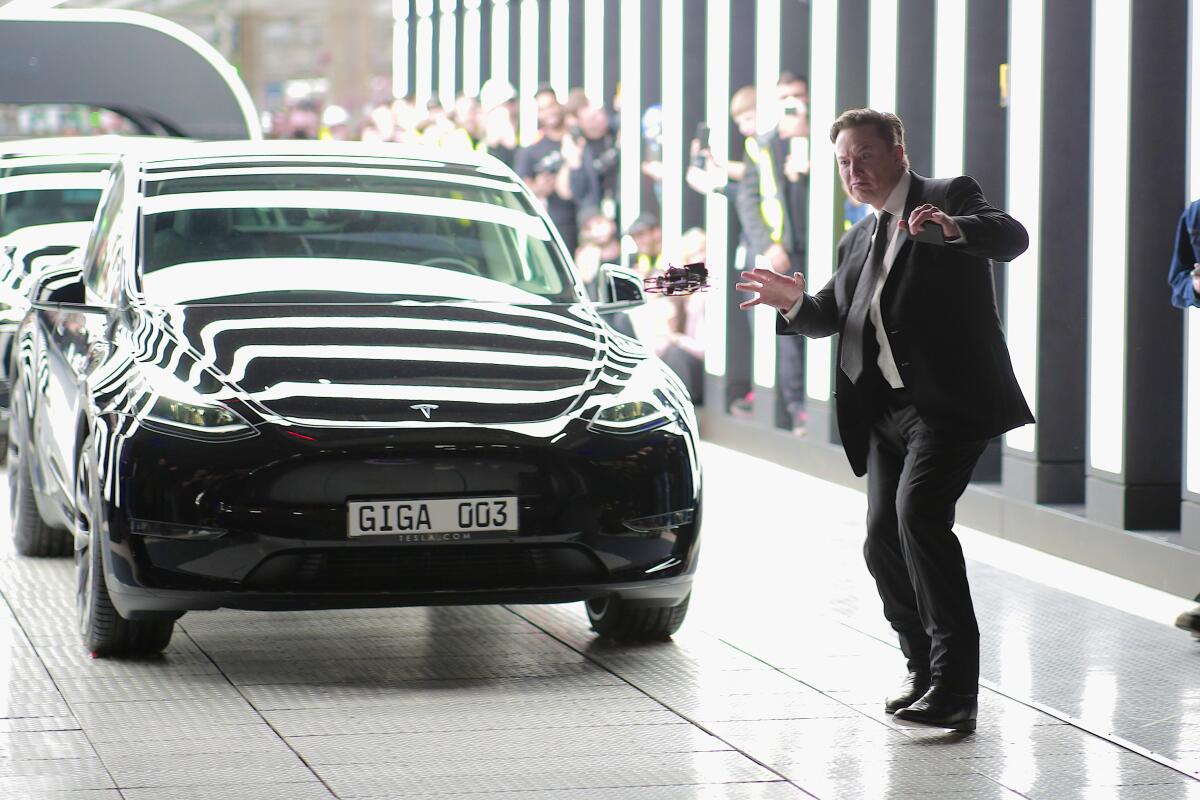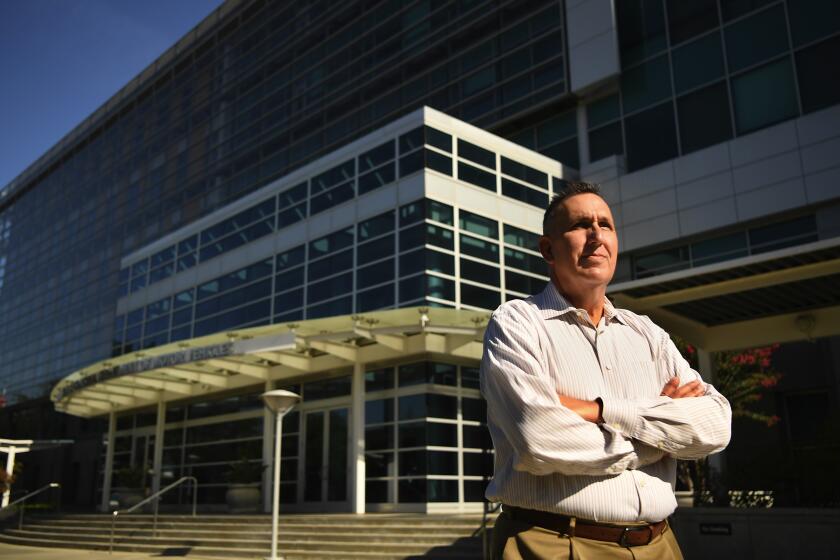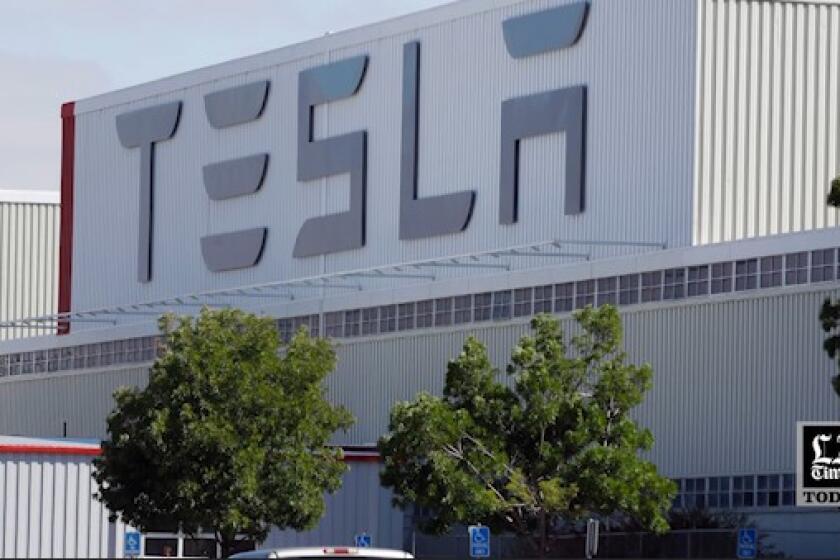California DMV accuses Tesla of falsely advertising Autopilot and Full Self-Driving features

- Share via
The California Department of Motor Vehicles has accused Tesla of false advertising in its promotion of the company’s signature Autopilot and Full Self-Driving technologies.
The agency alleges the electric-car maker misled customers with advertising language on its website describing Autopilot and Full Self-Driving technologies as more capable than they actually are.
The company “made or disseminated statements that are untrue or misleading, and not based on facts,” the DMV said in a pair of complaints filed with the state Office of Administrative Hearings on July 28.
The DMV complaints point to the very names of the technologies, as well as other “misleading” language such as the following, which appears on the Tesla website’s Autopilot page:
“All you will need to do is get in and tell your car where to go. If you don’t say anything, your car will look at your calendar and take you there as the assumed destination. Your Tesla will figure out the optimal route, navigating urban streets, complex intersections and freeways.”
The remedies proposed by the DMV if it prevails could be severe, including revocation of the company’s licenses to make or sell its cars in California. But actual remedies probably would be much softer.
A DMV spokesperson said Friday via email that if its action succeeds, “the DMV will ask that Tesla will be required to advertise to consumers and better educate Tesla drivers about the capabilities of its ‘Autopilot’ and ‘Full Self-Driving’ features, including cautionary warnings regarding the limitations of the features, and for other actions as appropriate given the violations.”
In June, Tesla Chief Executive Elon Musk underlined the importance of Full Self-Driving to the company. Without it, Tesla is “worth basically zero,” he said.
The Full Self-Driving feature costs $12,000 and purports to automatically pilot the car on freeways, city streets and neighborhood roads; automatically obey traffic signals; and roam a parking lot without a driver to park itself.
Despite the name, no car available for purchase by individuals is capable of fully autonomous driving from Tesla or any other company.
Tesla cars never could, “and cannot now, operate as autonomous vehicles,” the DMV claims assert.
A review of Tesla’s claims around its self-driving technology comes after a spate of accidents and videos showing owners ‘driving’ from the back seat.
The DMV notes that Tesla’s website states that “the currently enabled features require active driver supervision and do not make the vehicle autonomous.”
But, the DMV said, the disclaimer “contradicts the original untrue or misleading labels and claims, which is misleading, and does not cure the violation.”
Tesla’s driver-assisting technologies have been popular features that help the carmaker stand out in an increasingly crowded electric vehicle market. But YouTube videos showing its systems placing cars in dangerous situations have drawn attention, including near head-on collisions with trucks and trains that require a driver to yank the steering wheel to avoid a crash. One video appears to show Tesla’s sensor system confusing the moon for a traffic light stuck on yellow.
Autopilot, a less expensive feature that combines automatic cruise control with automatic steering and automatic lane changes, came under investigation by the National Highway Traffic Safety Administration when Teslas showed a pattern of plowing into emergency vehicles parked by the roadside.
It’s unclear how many crashes involve Full Self-Driving technology, and whether any of those crashes have led to death or injury. Tesla’s onboard computers are capable of communicating that information over the air to Tesla, but the company doesn’t share those data with the public.
Recently, Musk claimed that Full Self-Driving had not been a factor in any Tesla crash, although at least eight crash reports submitted by Tesla owners to federal safety regulators indicate otherwise.
Tesla’s response to the DMV complaints, if any, has not yet been made public. Tesla has no media relations office. Musk did not respond to an invitation to tell Tesla’s side of the story.
State Sen. Lena Gonzalez (D-Long Beach), who chairs the Transportation Committee, called the DMV’s accusations against Tesla “extremely concerning.”
“It is extremely important that the technology’s limitations are presented in the most intelligible way to best protect public safety on our roads across California,” she said.
More to Read
Inside the business of entertainment
The Wide Shot brings you news, analysis and insights on everything from streaming wars to production — and what it all means for the future.
You may occasionally receive promotional content from the Los Angeles Times.













